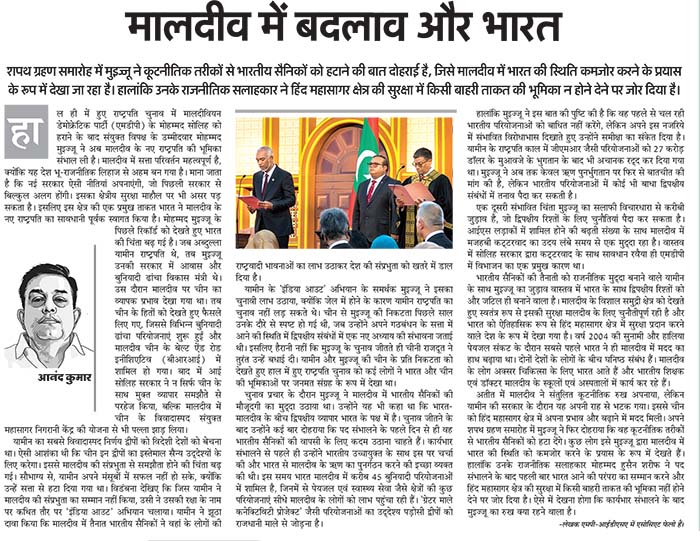Political stability at stake in Bangladesh
January 03, 2024
Associate Fellow, Manohar Parrikar IDSA, Dr Anand Kumar’s article ‘Political stability at stake in Bangladesh’ has been published in The Tribune on 3 January 2024. Ruling Awami League is poised for an encore amid poll boycott by main Opposition party, says Dr Kumar.









